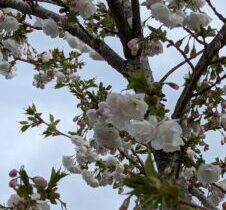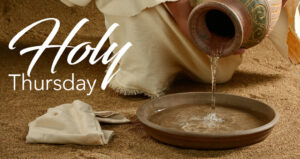How Do We Remember?
 Memory is a tricky thing. As we go through life, we experience so many things that it would be overwhelming if we were aware of all of them at every second of every day. Good things, hard things, sad things, short-time things, long-term things.
Memory is a tricky thing. As we go through life, we experience so many things that it would be overwhelming if we were aware of all of them at every second of every day. Good things, hard things, sad things, short-time things, long-term things.
When things happen that are particularly memorable or important, we think we’ll never forget them. But we do forget details. And our memories reflect what we found most important about the events. Have you ever told a story to someone else about a past event and had a partner or friend who was there and an active participant in the event tell a very different story or correct your version? The older we get, the more frequently it happens, I think.
Part of what happens is that our minds process information based on our experiences and our past history. The explanatory systems of our culture and our society, the ways we explain why things happen and how it all came to be, also shape the way our experiences are processed. Over time, memories of the everyday sort begin to be just one of so many stored in the “card catalog” of our internal mental libraries – there for the finding again, but maybe a bit aged, torn, or tattered.
I started thinking about memories this year during the Holy Thursday liturgy as we heard the story of the first Passover and St. Paul’s description of how Eucharist was celebrated in the first Christian communities. These events took place thousands of years ago! Yet we still remember and celebrate them. More amazingly, we celebrate them in a way very close to what was originally described.
Moving through the rest of the week, we hear more of the story of God’s work in bringing about reconciliation between humanity and himself. The words of prophets calling the community to care for the least capable people among us. The praise of those who are faithful to their mission despite being mistreated, abused, and even killed. The retelling of the ancient stories of creation, the covenant with Abraham, the crossing of the Red Sea. Descriptions of the Last Supper, Jesus’ agonized prayer in the garden before his arrest, his trial, execution, and burial. The wonder of the Resurrection, first discovered by women from the community who were his followers. The reflections of that community on what happened in the life of Jesus and the tremendous surprise of the Resurrection. Nobody expected such an outcome! There were no precedents on which to draw for explanation.
How would it all be passed on to a wider group of people? It was too important to be kept a secret, though in the first weeks no one spoke publicly about it. That would have been too dangerous. With the coming of the Holy Spirit at Pentecost, they were emboldened to speak publicly and so the world has come to know the wonders they witnessed.
The memories written down in the Gospels and Passion narratives are very similar, but they too were written by different people in different places and for different audiences. So, some of the details differ. The basics remain the same, however. The event happened and in more or less the same way described in each account.
Then how do these differ from other ancient stories such as the Odyssey, the Epic of Gilgamesh, the Iliad, and others? Why are they still remembered and actively celebrated in a way similar to the ancient ways?
Perhaps there are a few things that have made it possible. The first that comes to mind is the fact that these events happened in a community which had a history of remembering and reenacting ancient events. The Lord told the people that first Passover that the date on which it happened originally was to be the first day of the new year for them. It was to be celebrated the same way each year. And so it happened. Even to our day, at Passover, families and friends gather to celebrate this saving act of the Most High. Out of this celebration, the Christian community drew their remembrance, because Jesus gave the same kind of instructions to his friends when they gathered for the dinner. “Do this in remembrance of me.” This line is repeated each time we gather for Eucharist. Because the Resurrection took place on the first day of the week, Sunday on our calendar, it was seen as the beginning of a new reality in creation.
Another factor that has played into the continuation of this wonder is the fact that it involves more than just words. We pray actively – sitting, listening, standing, moving around the room, singing, eating, and drinking. We bring all of our senses into the experience, so we learn it deeply in our very being. The tastes, the smells, the sights and sounds – all are incorporated into our memories of the experience. Do we remember each specific time we have celebrated Eucharist? No. But we remember it as part of the rhythm of our lives and remember at least some details of the times that were out of the ordinary.
Perhaps one of the most important factors is that there is no time in Eternity. God’s time is totally separate from ours. God’s time is all Now, the present. From this comes the ancient Hebrew understanding that “Our ancestors crossed the Red Sea and our feet are wet.” When we celebrate Eucharist, the same thing happens. We are present with the apostles at that table with Jesus. We receive the same gift from him that was given to his closest friends. We are part of that community of “closest friends.”
And so, in the words of a lovely hymn, “We remember how you loved us to your death and still we celebrate for you are with us here. And we believe that we will see you, when you come in your glory, Lord. We remember, we celebrate, we believe.”
Happy Easter!
Readings for Holy Thursday – Evening Mass of the Lord’s Supper – Cycle B
Readings for Good Friday of the Lord’s Passion – Cycle B
Readings for Easter Vigil – Cycle B
Readings for Easter Sunday – Cycle B
Read More











